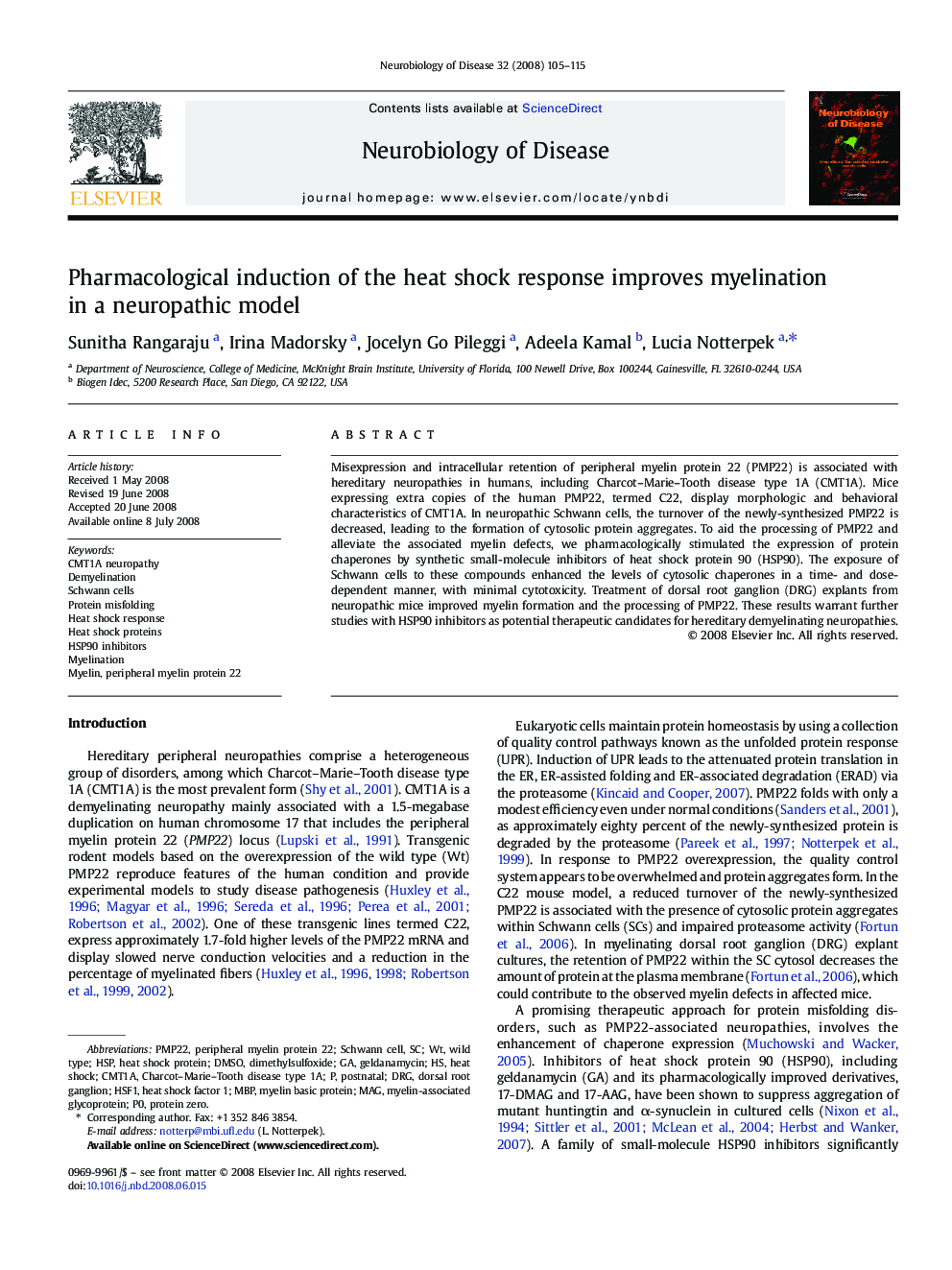| Article ID | Journal | Published Year | Pages | File Type |
|---|---|---|---|---|
| 3070144 | Neurobiology of Disease | 2008 | 11 Pages |
Misexpression and intracellular retention of peripheral myelin protein 22 (PMP22) is associated with hereditary neuropathies in humans, including Charcot–Marie–Tooth disease type 1A (CMT1A). Mice expressing extra copies of the human PMP22, termed C22, display morphologic and behavioral characteristics of CMT1A. In neuropathic Schwann cells, the turnover of the newly-synthesized PMP22 is decreased, leading to the formation of cytosolic protein aggregates. To aid the processing of PMP22 and alleviate the associated myelin defects, we pharmacologically stimulated the expression of protein chaperones by synthetic small-molecule inhibitors of heat shock protein 90 (HSP90). The exposure of Schwann cells to these compounds enhanced the levels of cytosolic chaperones in a time- and dose-dependent manner, with minimal cytotoxicity. Treatment of dorsal root ganglion (DRG) explants from neuropathic mice improved myelin formation and the processing of PMP22. These results warrant further studies with HSP90 inhibitors as potential therapeutic candidates for hereditary demyelinating neuropathies.
